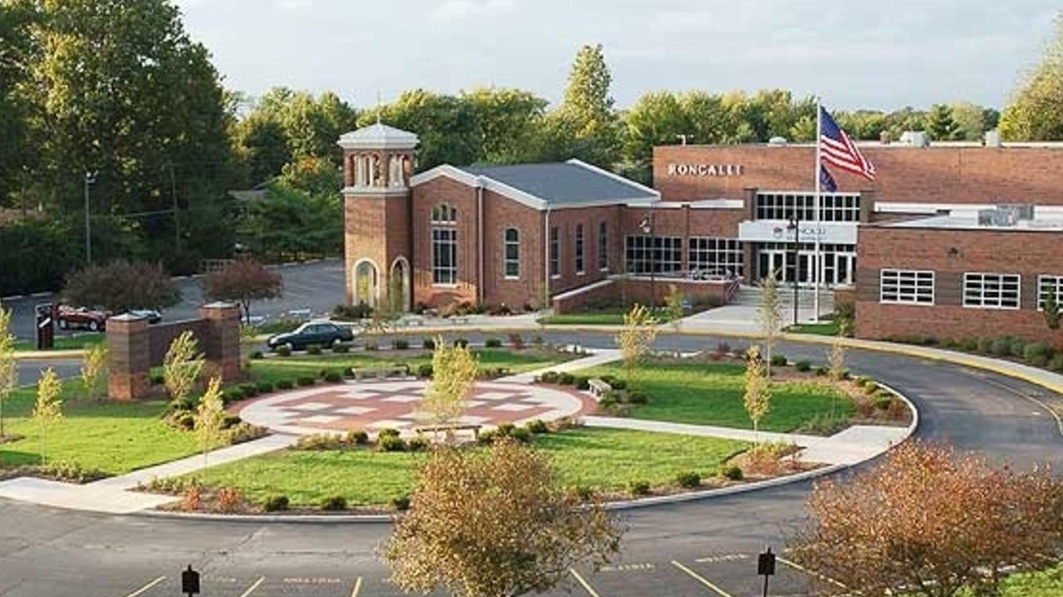Roncalli High School and the Catholic Archdiocese of Indianapolis have been sued by a guidance counselor who was let go after it was revealed she was married to another woman. Shelly Fitzgerald, who married her same-sex partner in 2014, admits that she kept the relationship a secret from the school when she signed multiple contracts over the years that required her to live according to biblical standards for marriage and sexuality. She was placed on administrative leave in 2018 once the relationship was exposed, and later terminated.
Amazingly, Fitzgerald is not the only lesbian-identified guidance counselor currently suing the school after being fired for violating the school’s standards on marriage and sexuality. Lynn Starkey, who had been employed at the school for 40 years, filed suit against Roncalli High School in July after being terminated for violating her contract with the school because she married another woman.
Both of these cases involve allegations that the school and the archdiocese discriminated against the women on the basis of sex, in violation of Title VII of the Civil Rights Act of 1964, which prohibits certain types of employment discrimination.
Notice that the charge is discrimination on the basis of sex, not sexual orientation. That’s because the literal language of Title VII mentions only sex, which in 1964 could only have meant biological sex. However, a few federal courts and the Equal Employment Opportunity Commission (which supports these kinds of cases) have in recent years pushed for the inclusion of sexual orientation (and gender identity also) on the theory that the category of “sex” includes those other categories as well.
That theory is being tested right now at the U.S. Supreme Court. On October 8, the court heard oral arguments in three cases that sexual orientation and gender identity are included within the dictionary definition of “sex” as that word was used in 1964. That’s a stretch, but we won’t know whether the high court agrees or disagrees with that argument for several months.
One might assume that a religious organization such as a Catholic school and archdiocese would be legally able to hire like-minded employees and fire those who aren’t. There are two points you need to understand here.
First, Title VII does allow religious organizations and institutions to hire like-minded people. But the law is not particularly clear on what happens when those hiring rights clash with the law’s other prohibitions against discrimination based on things such as sex, race, color, national origin or disability. Most courts assume that religious organizations and institutions are only protected when they hire and fire based on religion, not those other categories, and the text of the law and court decisions on the subject would seem to bear this out.
Second, the First Amendment’s religion clause comes into play here–”Congress shall make no law respecting an establishment of religion, or prohibiting the free exercise thereof…”–to protect religious organizations from government interference with the hiring and firing of their “ministers.” This “ministerial exception” has been recognized by the Supreme Court as recently as 2012 in the Hosanna-Tabor Evangelical Lutheran School v. EEOC decision.
The question typically addressed in these types of cases is “Who qualifies as a minister?” The Supreme Court noted some factual bases it considered in its 2012 decision, but whether a “guidance counselor” qualifies as a “minister” may be decided on the facts of these two cases.
It is clear that the exception does not just apply to those employees who carry the title of “minister.” In fact, the 7th U.S. Circuit Court of Appeals, which covers the state of Indiana where these cases were just filed, recently interpreted the exception broadly, by ruling that it will assume the religious organization’s designation of the employee as a “minister” is valid, unless the employee can show that the designation is merely a pretext. That’s a high bar for the employee to hurdle.
These two guidance counselor cases, along with the three employment cases the Supreme Court will soon be deciding, will play major roles in the development of the law concerning LGBT issues, religious freedom and the constitutional doctrine of the separation of powers.
The case is Fitzgerald v. Roncalli High School.






